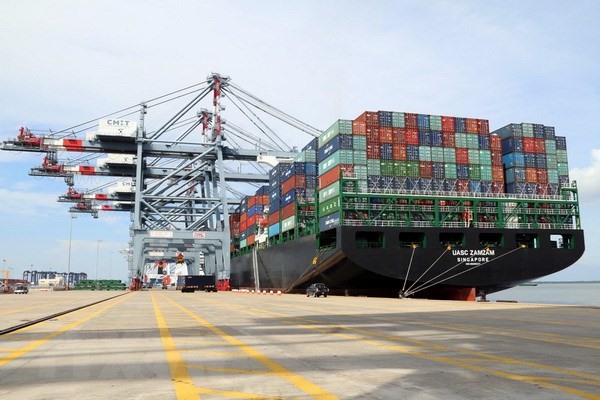 Economy
Economy

A recent survey by the Việt Nam Logistics Research and Development Institute shows that Vietnamese businesses do not pay much attention to information security of online platforms.

|
| Vietnamese businesses do not pay much attention to the information security of online platforms.— VNA/VNS Photo |
HÀ NỘI — A recent survey by the Việt Nam Logistics Research and Development Institute (VLI) shows that Vietnamese businesses do not pay much attention to the information security of online platforms.
Only 5.26 per cent of businesses believe that security neglect hinders the digital transformation process of enterprises.
The survey also shows that 38.24 per cent of logistics enterprises believe that COVID-19 has formed a need for digital transformation, while 42.65 per cent of enterprises believe that the impact of COVID-19 is changing the needs of customers, such as using more electronic transactions and e-commerce delivery services.
In addition, other trends have been formed, such as changing the concept of logistics business operation and the ability to work remotely.
Enterprises participating in the survey showed an interest in the important role of digital transformation. However, the process generates many difficulties and barriers, such as technical compatibility between their businesses and partners in the logistics service chain (44.74 per cent), limited funding and human resources (42.11 per cent).
Nearly 40 per cent said that they had not yet found the right conversion technology, and 28.95 per cent wondered how to spend appropriate investment and how to start the process.
Moreover, converting a huge amount of existing information to a digital platform was also an obstacle for 15.97 per cent of businesses.
Meanwhile, logistics businesses do not pay attention to the information security of online platforms, and only 5.26 per cent of businesses think that this is an obstacle to the transformation process of enterprises.
The survey results show that to promote a strong digital transformation, it is necessary to closely cooperate with logistics enterprises in the whole service chain network to make the right decisions in choosing the right application or platform.
Digital transformation depends a lot on the mindset of business leaders and must be seen as a strategy for businesses including small and medium enterprises, said VLI.
Logistics businesses have the characteristics of operating with a large amount of data (big data), the number of orders can be from a few hundred thousand to a million orders per day, and the need for digital transformation becomes a matter of urgency and a prerequisite for the performance of the activity.
It is worth noting that although there are many difficulties affecting the application of information technology and the digital transformation of Vietnamese logistics enterprises, businesses have made great efforts to invest in and apply the information technology needed.
Specifically, 75 per cent of businesses are using FMS (forwarding management software); 63.89 per cent of enterprises are using OMS (order management software) and WMS (warehouse management software); and 61.11 per cent of businesses are using TMS (transportation management software).
Applications that can optimise operations such as VRP (vehicle routing system); or AS/RS (automatic picking and storage system); and automatic guided vehicles are used by few enterprises, 19.4 per cent, 16.67 per cent and 11.11 per cent, respectively.
The application of drone technology has not been used at all, but 11.11 per cent of Vietnamese logistics enterprises plan to use it in the future. — VNS




